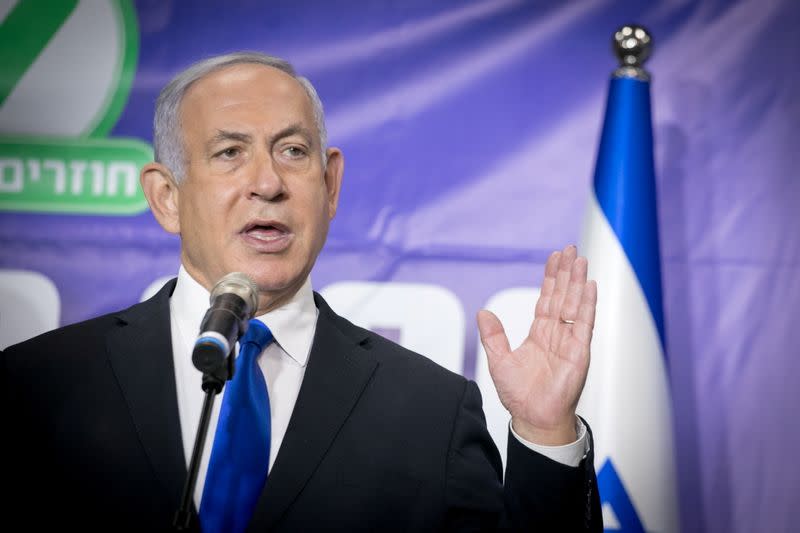By Dan Williams and Suleiman Al-Khalidi
JERUSALEM / AMMAN (Reuters) – Israel’s announcement that Prime Minister Benjamin Netanyahu postponed a first visit to the United Arab Emirates on Thursday due to the delay in Jordan’s overflight rights drew a rare disapproval from Amman because of a contested holy site of Jerusalem.
An appearance in Abu Dhabi would have allowed Netanyahu to endorse the ties between Israel and the United Arab Emirates that were formalized last year – a flourishing of foreign policy as he seeks re-election on March 23.
The United Arab Emirates did not formally confirm the planned visit, which was leaked to Israeli media on Wednesday. According to a statement released by Netanyahu’s office, he and Abu Dhabi’s Crown Prince, Sheikh Mohammed bin Zayed al-Nahyan, agreed to reschedule.
A delay in allowing Amman to fly over Netanyahu’s plane “apparently” resulted from the cancellation of a visit by Jordanian Crown Prince Hussein bin Abdullah to the Al Aqsa mosque complex in Jerusalem on Wednesday because of a dispute over security measures. security at the scene, the statement said.
Permission eventually arrived, but it was too late for Netanyahu’s itinerary, which included meeting with his Hungarian and Czech counterparts on Thursday, the newspaper said.
Jordanian officials were not immediately available to comment on the issue of the overflight. But Foreign Minister Ayman al-Safadi confirmed the cancellation of the Crown Prince’s visit to Al Aqsa – which would have been the first of the future king of Jordan.
State television quoted Safadi as saying that Israeli officials tried to change a program agreed with Amman in a way that it considered detrimental to Palestinian and Muslim rights of worship.
“The Crown Prince did not want to allow Israel to impose restrictions on Muslims,” said Safadi.
Jordan’s Hashemite dynasty is the guardian of the Al Aqsa complex, an icon of the struggle for the Palestinian state and the third most sacred site of Islam. Israel, which made peace with Jordan in 1994, maintains security control around the site, which the Jews revere as a vestige of their two ancient temples.
Jordan says Israel does not have sovereign rights over the complex and has long been irritated by organized visits by religious Jews.
Netanyahu was due to visit the United Arab Emirates and Bahrain – which also established ties with Israel – last month, but postponed the trip citing COVID-19 travel restrictions.
(Written by Dan Williams; Editing by Jeffrey Heller and Mark Heinrich)
